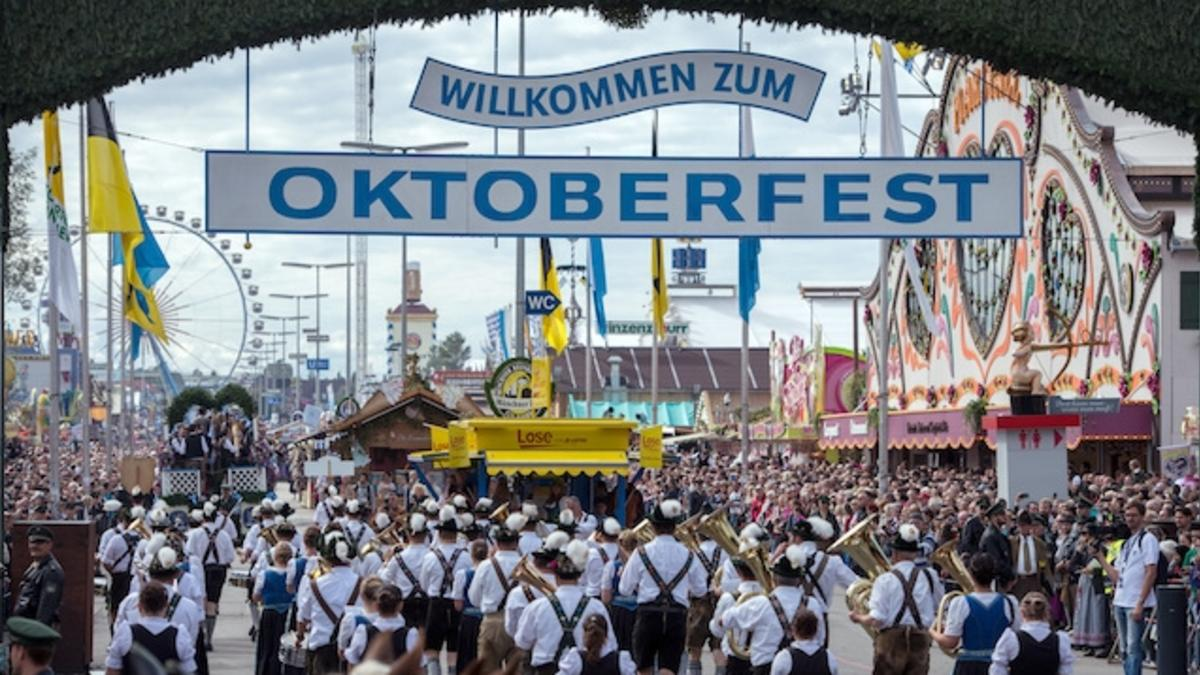Oktoberfest, the legendary Bavarian beer festival, is celebrated globally, but no place embodies the spirit of the event more than its birthplace in Munich. Drawing six million revelers annually, according to Munich’s Department of Labor and Economics, Oktoberfest, or “Wiesn,” is a must-see. Here’s a guide to navigate the festival like a pro.
What to Wear
For many, dressing in traditional Bavarian attire is part of the fun. Women typically wear dirndls, while men opt for lederhosen. Unlike in other parts of the world, visitors are encouraged to wear these outfits, embracing the local culture rather than risking cultural misappropriation. Whether you purchase an affordable costume or rent a high-quality outfit, it’s all part of the experience.
Remember: Lederhosen is plural, so one pair of trousers is a lederhose. These are distinctively Bavarian, not typically worn elsewhere in Germany—except, of course, during Oktoberfest.
Ordering and Tipping
Beer at Oktoberfest is served in large one-liter glasses called mass (not steins as commonly believed). The festival servers are skilled, often carrying up to six mass at a time, each weighing around 12 kg (26 lbs). These hardworking servers are paid based on sales, so tipping generously is customary. To get their attention, look for their name on a clothespin or use the informal address “du,” meaning “you” in German.
When the band plays “Ein Prosit,” a traditional drinking song, make sure to clink glasses, finish your drink, and be ready to order another. Link arms with your neighbors and sway to the music, a practice known as Schunkeln.
A note for women wearing a dirndl: the bow placement is key. Tied on the right means you’re single and ready to mingle.
More Than Beer
While beer takes center stage, Oktoberfest offers plenty of other beverages like wine, Apfelschorle (carbonated apple juice), alcohol-free beer, and soft drinks. Food is also a major part of the celebration. From giant pretzels (brezen) to sausages, schnitzel, and fries, the options are endless and delicious.
Munich Must-Do’s
Beyond the festival, Munich has much to offer. The historic Theresienwiese is close to landmarks like the Sendlinger Tor, Viktualienmarkt, and the famous Hofbräuhaus. For a day trip, Neuschwanstein Castle, Salzburg, and Rothenburg ob der Tauber are all nearby and well worth visiting. After the festivities, consider relaxing at Lake Starnberg, surrounded by the scenic Alps.
Oktoberfest Around the World
For those who can’t make it to Munich, there are plenty of global Oktoberfest celebrations. In Hong Kong, the Marco Polo German Bierfest offers the full Oktoberfest experience with stunning harbor views. In the U.S., Cincinnati hosts a large festival, and in Brazil, the town of Blumenau celebrates with South American flair.
For a less crowded alternative, check out Munich’s Spring Festival held at the same location, offering a similar festive atmosphere on a smaller scale.










